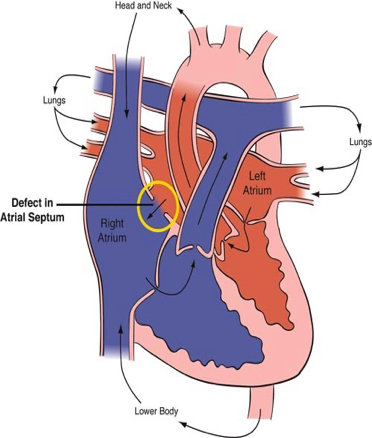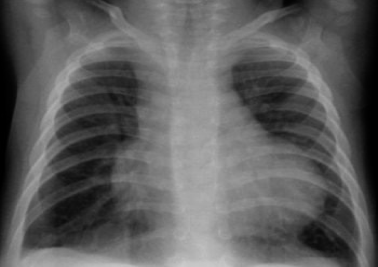Atrioventricular Septal Defect (ASD)

- Defect in atrial septum
- Pressure in LA is greater than RA (blood flows left to right)
- Oxygen-rich blood leaks back to RA & RV and is then pumped back to lungs
Symptoms of ASD
-
Asymptomatic
-
Large defect may cause symptoms of CHF:
- Rapid breathing
- Excessive Sweating
- Poor feeding, failure to thrive
-
In adults:
- Fatigue and dyspnea on exertion
- Palpitations
- Syncope
- Stroke
- Eisenmenger’s syndrome
Signs of ASD
- Heart murmur resulting from increased blood flow through pulmonary valve (systolic ejection murmur)
- Wide and fixed splitting of second heart sound
- Parasternal heave (RVH)
- Signs of congestive heart failure
Treatment of ASD
- Small defect (less than 5mm), may resolve spontaneously
- Medical Management (Lasix, Captopril) for large defects with symptoms of heart failure
- Transcatheter devices, such as a septal occluder may be used
- Surgical closure is needed for large defects that cannot be closed by Transcatheter devices
- Pulmonary artery banding to reduce blood flow to lungs if not stable for surgery
